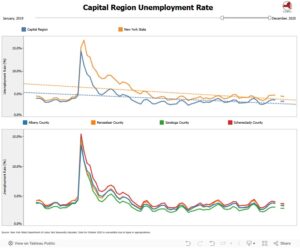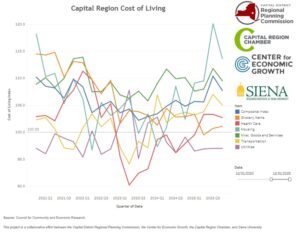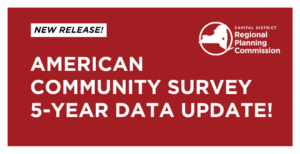2023 Workshop
View the 2023 Workshop Program to see the Agenda, Speaker Biographies, and Session Descriptions.
Plenary Session
Public Participation: The Good, The Bad, and The Ugly
Public participation is a cornerstone of the Planning and Zoning process and few would disagree that it is a vital component of sound decision-making. However, unstructured participation can actually impede the process, sometimes causing inefficiency, frustration and even animosity. We will try to discuss participation issues that arise in Public Hearing management, Open Meetings Law and Freedom of Information Law compliance and possibly “Citizen Audits” with an eye (and ear) toward best Planning and Zoning decision-making practices.
Session Speaker: Mark Schachner
Water Quality Sessions
Watershed Protection and Water Quality for People and Wildlife
This session covered techniques to protect or restore aquatic resources and provide an overview of related funding and technical assistance opportunities related to these topics. Examples include riparian buffers, barrier removal, source watershed planning, and water quality monitoring. Participants learned how watersheds can be key geographic units for making local land use and water resource decisions. This session outlined techniques, technical assistance, and grant opportunities for taking action to protect local water resources that support their communities.
Examples of ways to integrate environmental justice into water resource management were featured, alongside an overview of options for participants to directly engage in water quality protection by:
- Utilizing various grant opportunities for watershed planning and implementation (including source water)
- Participating directly in stream buffer planting through the Hudson Estuary Trees for Tribs program
- Restoring aquatic connectivity and barrier removal (a dam removal project on the Wynants Kill Troy will be highlighted)
- Conducting water quality monitoring
- Understanding DEC’s water quality monitoring programs
Session Speaker: Anna Palmer
Protecting Wetlands and Streams in Your Community
Wetland and stream regulations are changing at the federal and state level. Many wetlands and streams are vulnerable to degradation and loss. This session detailed changes to federal and state wetlands and stream regulations and ways local governments are protecting these key water resources.
Learning Objectives:
-
- Participants increased their familiarity with the types and values of wetlands in the Hudson Valley
- Participants gained knowledge of the changes to federal regulation of streams and wetlands in the context of the Supreme Court’s ruling in Sackett v. EPA and EPA rulemaking and of the significant pending reforms to NYS wetlands regulations
- Participants gained knowledge of the gaps in protection for smaller wetlands, seasonal streams, and adjacent buffers and knowledge of local measures to protect these sensitive and important resources
Session Speaker: Emily Svenson & Christine Vanderlan
Free Assistance to Protect You Communities Drinking Water Source
The Drinking Water Source Protection Program (DWSP2) is a locally led, state-supported program that empowers municipalities to take action to protect their public water sources and surrounding environment. DWSP2 provides free assistance to develop and implement a source water protection plan.
Learning Objectives:
-
- Benefits of source water protection
- Methods for implementing source water protection
- Who is eligible to M9participate in DWSP2
- How to participate in DWSP2
Session Speakers: Lindsey Drew & Stephanie Facchine
Transportation & Land Use Sessions
The Road Ahead: Solutions for Transportation and Land Use Challenges
Key findings of its draft Congestion Management Process & Coordinated Transportation-Human Services Plan will be presented. These recently completed initiatives are integral to the development of the long-range transportation plan & shaping our future transportation system. The session highlighted the key findings of its draft Congestion Management Process & Coordinated Transportation-Human Services Plan. These recently completed initiatives are integral to the development of the long-range transportation plan. The presentation focused on the connection between land use planning & transportation & how tools like site design, access management, corridor planning, & zoning practices can be utilized to reduce congestion & create more connected communities. It also touched on important topics like Smart Growth, ADA requirements, & evolving technologies. The session offered attendees a first opportunity to provide input on these plans & to learn about their relationship to the regional transportation plan, known as New Visions 2050. The session was concluded with an opportunity for attendees to voice their ideas on the future of the Capital Region for the update of the regional transportation plan due in 2025.
Session Speaker: Jen Ceponis, Carrie Ward & Andrew Tracy
Special Use Permits
Some uses require additional review and should be granted permission only if certain conditions are met. SUPs are used in environmentally sensitive overlay zones (like wetlands or steep slopes). This session taught attendees about rules local boards must follow for reviewing and approving applications are covered.
Session Speakers: Patricia Burke, Brent Irving & Christopher Eastman
Tiny Homes, Big Questions: Regulating Tiny Homes in Your Jurisdiction
While tiny homes have been around for years, recent trends in downsizing as well as a lack of affordable housing have caused the popularity of tiny homes to skyrocket. This course provided an overview of the laws governing tiny homes in NY, and the regulatory options available at the local level. The learning objectives of the session were to cover the types of tiny homes local governments may encounter, the codes that are applicable to the structures, and the methods available to regulate the structures.
Session Speaker: Katie Hodgdon
Housing and Community Development Sessions
Housing Trends and Regulatory Options
This session explored the rising need in housing, how municipalities are addressing, considerations in evaluating code modifications, as well as goals of New York State. This session explored the rising need in housing, how municipalities are identifying and addressing key obstacles, and focusing on evaluating required local code modifications to support housing diversity. The program speaker discussed key housing goals of New York State and identified various funding streams available to communities to update local plans and to fund housing programs.
Session Speaker: Nicole Allen
Matching Your Code to Your Streetscape and Transportation Goals
This session discussed key principles to revitalizing existing Main Streets through code updates to support transportation goals. Details on bicycle, pedestrian, and transit supportive zoning were discussed along with a visual review of some Main Streets and their codes.
Want to reinvigorate and revitalize your Main Street and downtown? Your code matters!
Attendees learned how to make sure their zoning matches the streetscape and transportation goals their municipality wanted to achieve.
Session Speaker: Katherine Ember
Local Leader’s Toolkit for Attracting Private Investment
This session provided an overview of tools and best practices that local leaders may use to bolster economic development in your community.
Learning Objectives:
- Provide local leadership with an overview of challenges and opportunities associated with attracting private investment
- Overview economic development best practices for elected officials, appointed staff, and regulatory boards
- Assist local leaders in understanding the value of planning with respect to business recruitment, retention, and expansion
Session Speaker: Matt Horn


